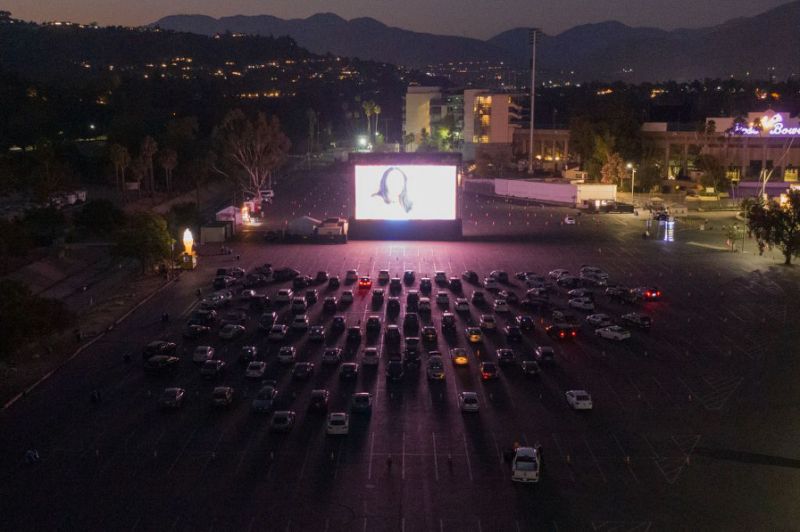
(Bloomberg Opinion) — The original dream of the internet was as an open medium, allowing unfettered worldwide communication. This vision evolved to allow for greater commercialization, but even then I expected to be able to buy or rent what I wanted, without much fuss or bother.
Unfortunately, when it comes to movies, this expectation is no longer valid. Covid-19 issues aside, the notion of an open market for new movies seems to be fading.
Earlier this week, I was thinking about watching the new Disney movie “Mulan.” (I have since been discouraged after reading of the film’s ties to Xinjiang.) It turns out I would have to pay $30 and subscribe to the Disney+ service. The subscription costs $6.99 a month, or $70 a year, or I could buy a bundled package along with Hulu and ESPN+ for $12.99 a month.
The $30 feels high for what would amount to a single “ticket” to the film (I don’t think my wife is interested), though I understand it is a reasonable price to pay for a family of three or four. Still, it feels to me that the real price is $70 a year. Because if I start subscribing to a cable channel, I don’t stop subscribing for months or even years. I am still paying for the FX channel, for example, due to an earlier dalliance with “The Americans,” which ended its run in May 2018.
I don’t mean to cast any aspersions on the content of Disney+ — for all I know, it’s splendid. But I try to follow newly released movies and don’t have time for much else. I’ll never find out how the last “Star Wars” installment holds up on a television, though I will find out yet again how bad I am at canceling subscriptions.
You might think the true fault lies with me — that I simply need to get my act together and organize my life. That is probably correct, but please do consider the matter from an economic point of view. I already subscribe to Netflix and Amazon Prime, so have a lot of free movies to choose from, or I could pull up a previously purchased DVD and watch it for free. So the marginal value of the extra movie I do not watch must be pretty low to me. To watch that extra movie, I won’t go to a lot of trouble or incur significant calculations costs to figure out how to cancel my various subscriptions.
In short, theaters are in a precarious and still partially closed state — the latest evidence being yet another delay in the release of the anticipated blockbuster “Wonder Woman.” Thus it has become difficult for me to see new movies as they are being released.
Another response to my whining might be to tell me that I live in a world of cinematic plenty, especially considering my various subscriptions and DVD collection. That is also entirely fair, but do keep in mind the original worry: that the future flow of movies is being broken up and that Hollywood is not regenerating the notion of a cinema with cultural centrality and import. “Star Wars,” “The Godfather,” and “Annie Hall” had real meaning to generations of Americans. Movies might now be in danger of becoming like board games: Many Americans love and play Scrabble, chess and Clue, but they are not a strong part of our common culture.
The music industry has kept its moorings, at least for popular music. If you subscribe to Spotify and dabble in YouTube, which is free, you have access to most of what is new.
Now consider the landscape for movies: Streaming services include Disney+, Apple TV+, Netflix, HBO Max, Hulu, Amazon Prime, Sling TV and Fubo TV. (I’m not even counting services such as the Criterion Channel, which are not large in terms of revenue but crucial to anyone, like me, who loves foreign films.) I’m not yearning for monopoly, but I do miss the good old days of paying $13.50 to walk into any theater and see the latest release. And I could watch without being constantly nagged to join their popcorn subscription service.
Might it be that some services simply work better analog than digital? I want to see the new Tom Hanks movie, “Greyhound.” It’s on Apple TV+ — seven days free, then $4.99 a month. That puts my cost at $60 a year.
There is an alternative: The other day my friend rented out a whole theatre to see “Tenet,” paying $150 and inviting 10 (Covid-careful) people, myself included. It was one of the cheapest, easiest and most enjoyable nights out I’ve had in a while.
This column does not necessarily reflect the opinion of the editorial board or Bloomberg LP and its owners.
Tyler Cowen is a Bloomberg Opinion columnist. He is a professor of economics at George Mason University and writes for the blog Marginal Revolution. His books include “Big Business: A Love Letter to an American Anti-Hero.”
<p class="canvas-atom canvas-text Mb(1.0em) Mb(0)–sm Mt(0.8em)–sm" type="text" content="For more articles like this, please visit us at bloomberg.com/opinion” data-reactid=”37″>For more articles like this, please visit us at bloomberg.com/opinion
<p class="canvas-atom canvas-text Mb(1.0em) Mb(0)–sm Mt(0.8em)–sm" type="text" content="Subscribe now to stay ahead with the most trusted business news source.” data-reactid=”38″>Subscribe now to stay ahead with the most trusted business news source.
©2020 Bloomberg L.P.











